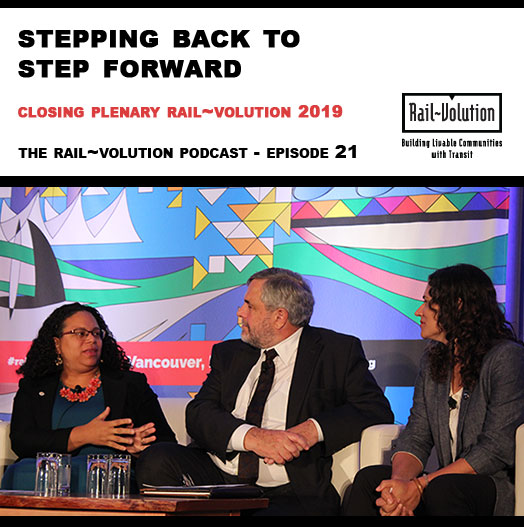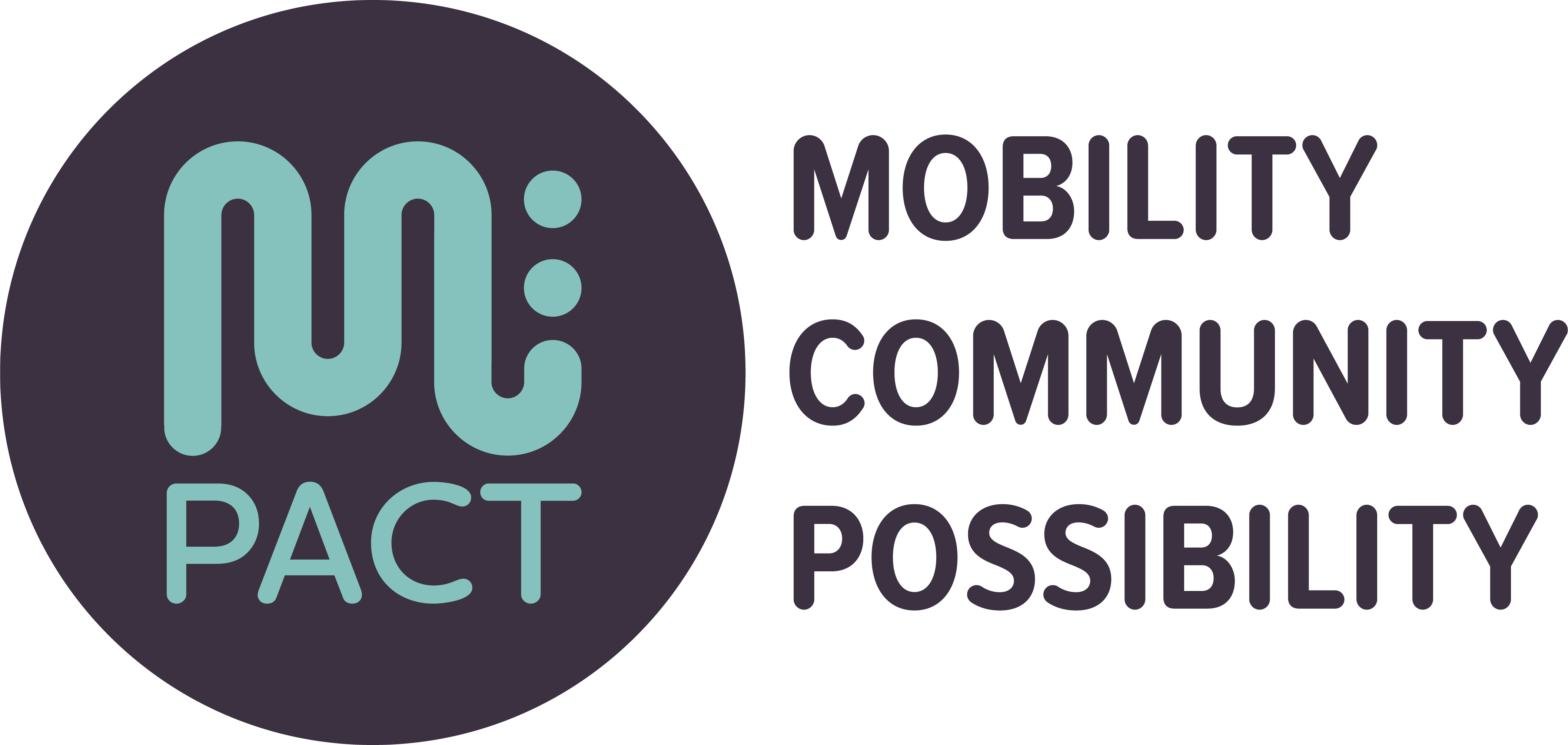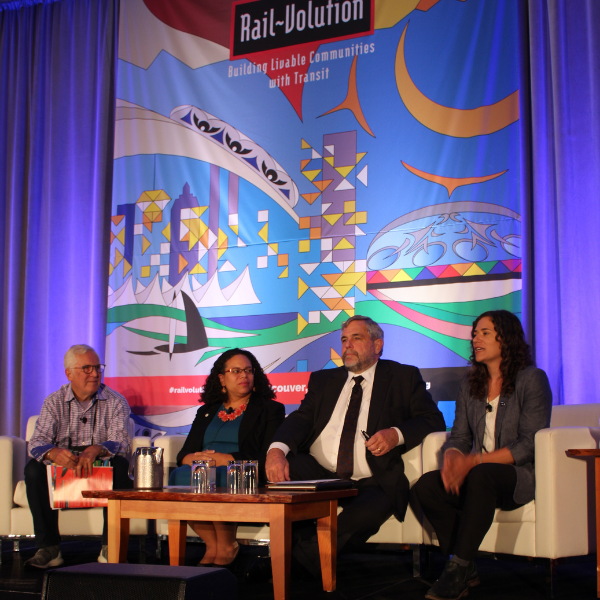Episode 21: Stepping Back to Step Forward
Live from Vancouver, the future of the livability revolution: a conversation moderated by GB Arrington and featuring Odetta MacLeish-White, Mac McCarthy and Lisa Bender.
Topics:
Tags:

At twenty-five years into the Rail~Volution, the future is in our hands. GB Arrington, one of the founders of the conference, shares the evolution of the movement and asks three of today’s thinkers and change-makers about the next revolution – the issues, what’s needed to address them, and the world they want to see in twenty-five years. The speakers are Odetta MacLeish-White, Managing Director, TransFormation Alliance, Atlanta, GA; George “Mac” McCarthy, President and Chief Executive Officer, Lincoln Institute for Land Policy, Cambridge, MA; and Lisa Bender, President of the City Council in Minneapolis, MN.
Lisa Bender, a planner by training, shares the approach to creating the Minneapolis 2040 Plan, which includes the elimination of single family zoning. She urges professionals to operate from within a system of values. “If you think of Rail~Volution as a movement made of professions profoundly shaping the future of our communities, I think we need to radically re-examine our roles and the questions we are asking in community.”
Odetta MacLeish-White, whose work in Atlanta is part of the SPARCC (Strong, Prosperous, And Resilient Communities Challenge) initiative, shared the power of being able to openly address race as a fundamental issue underlying disparities. She speaks of the art of collaboration and urges more focus on the experience of children and families on transit – and at their destinations. “If children are safe moving through community, that helps parents as well.”
Mac McCarthy, who sees land policy as a way of mediating between people and place, shares work happening in cities from Brisbane, Australia, to Washington, DC, to audit and leverage assets to address infrastructure needs. New tools and political will is needed because our metros are growing on old infrastructure. Investing in well-developed transit networks across “polycentric metros” would address growing congestion, make cities more resilient in facing the extreme weather of climate change – and directly address a huge source of climate emissions.


